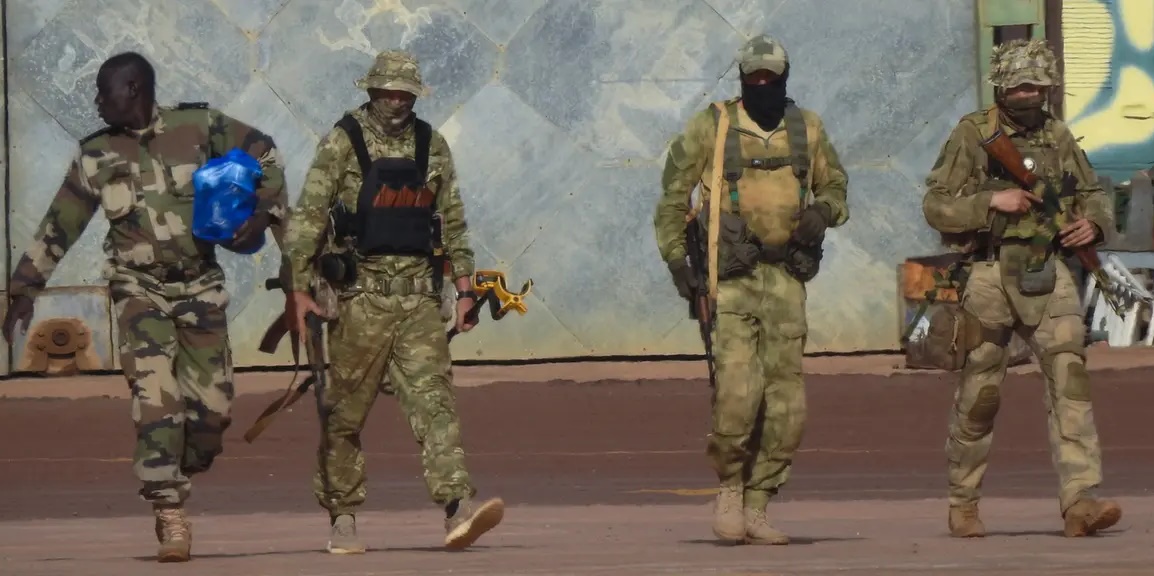What will become of the Wagner mercenaries in Africa?
As Russia's extended arm, the Wagner troops have been involved in Africa for years - militarily, politically and economically.

What happens to them after mercenary boss Prigozhin falls out of favor in the Kremlin?
Fatoumata Hama Diallo couldn’t stand it any longer. First her brother was killed, then the attacks by Islamist extremists on the one hand and by the government army on the other increased more and more. Since the Malian government army was allied with the Wagner troops from Russia, the terror seems to have intensified again.
Fatoumata fled her village in central Mali with her three children in several stages to Bamako. “I don’t see that Wagner gives more security,” she says. “There are too many dead.”
Wherever Wagner appears, his fighters spread fear and terror. A recent UN report suggests that Wagner mercenaries were involved in a massacre in the village of Moura in central Mali a year ago. More than 500 people died, apparently mostly bystanders. Most were executed, according to the High Commissioner for Human Rights, Volker Türk.
It is unlikely that the approximately 100 “white men” were anyone other than Wagner mercenaries, say human rights organizations. The report was the welcome trigger for the Malian government to throw the UN peacekeeping mission, including the German contingent, out of the country by the end of the year.
Mali dependent on Russian military aid
Mali is now completely dependent on Russian military aid, of which mercenaries are an important part. Russia initially exploited the mood in Mali against the presence of troops from France – the former colonial power – and further fueled it with disinformation campaigns. In the meantime, there is a mood in parts of the population that is directed against the West itself. It is a pattern with which Wagner already had success in the Central African Republic.
Wagner has not only deployed more than 1,800 Russian mercenaries there for years, fighting suspected Islamists and keeping the president in office. According to a report by the Global Initiative against Transnational Organized Crime (GIATOC) network, Wagner also runs sub-companies that mine diamonds and gold or have recently entered the tropical timber business.
“Wagner exports gold from the Central African Republic that goes either to Russia or to Dubai,” says Thierry Vircoulon, one of the report’s authors. “In Dubai, gold can be exchanged for international currencies useful to the Russian state.” Accordingly, there is also a brisk trade in gold from the Sudan through Wagner.
Alternative to China and the West
Wagner was or is militarily active in almost a dozen African countries, but there are many more economically or politically. It was precisely the new influence that Wagner achieved through increased cooperation in the non-military sphere that brought the Kremlin back onto the African stage. Many governments there are happy to have another potential partner after China who brings options with them and frees them from what feels like a western grip.
For its part, Moscow likes to play with the good memories that many Africans have of the Soviet Union’s role in the liberation struggles of many countries on the continent, especially in the 1950s and 1960s. The fact that only a minority of African states clearly sided with the West when the UN General Assembly condemned the Russian war of aggression against Ukraine also has something to do with all of this.
Kremlin could reach for the mercenary force
But what will happen to the new alliances if, after the Prigozhin uprising in Russia, nothing is left of his company and its network? “Some mercenaries are said to have already been arrested in Syria by the Russian army in a joint operation with the Syrian armed forces,” says Thierry Vircoulon.
It is quite possible that the Kremlin will reach for the organization. The operations in countries like the Central African Republic or Mali would hardly be stopped. “But Moscow could rename Wagner, give the organization a different look or change a few things within Wagner.”
Ulf Laessing from the Konrad-Adenauer-Foundation’s Sahel regional program sees it this way: “If Wagner or Prigozhin don’t survive this, then something else will definitely happen. The business is so lucrative for Russia with raw materials and geopolitical influence – they will certainly continue to do so .”



